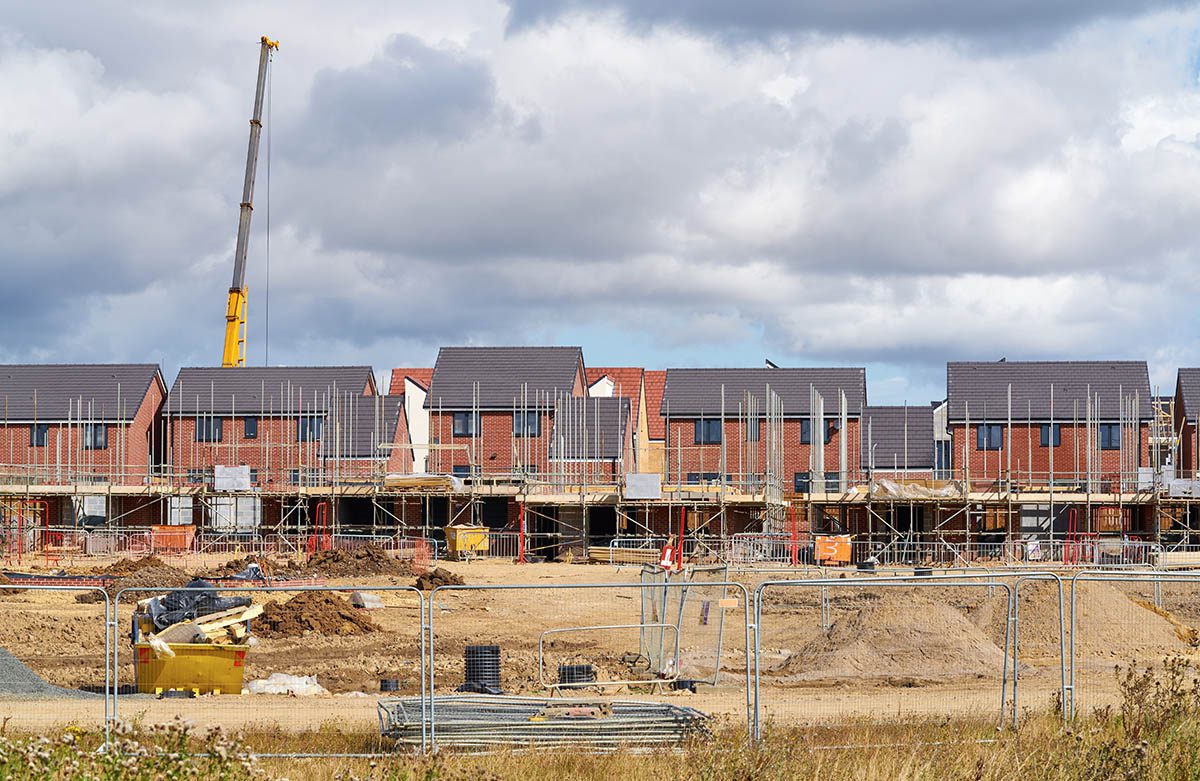
The UK government said nature-positive developments were moving a step closer on 27 July as it announced additional government support to enable the rollout of Biodiversity Net Gain.
Many housing developers are already successfully operating Biodiversity Net Gain recognising the benefits for people and nature, said Defra. From later this year, it will be mandatory: All major developments will be required to deliver a 10% benefit for nature.
Biodiversity Net Gain was introduced through the Environment Act and is said to be a key part of the government’s commitment to halt species decline by 2030. “By mandating the creation of new habitat and green spaces when building new housing, commercial or infrastructure developments, we will be able deliver the beautiful homes that the country’s needs – benefitting people and nature.”
To help the roll out, over £9 million of funding was seemingly committed (on 27 July) to help local authorities recruit additional ecologists and specialists. This will help local authorities better safeguard and enhance habitats during the development process.
Trudy Harrison Nature Minister said: “Biodiversity net gain will bring nature closer to where people live, creating greener and more beautiful communities. Today’s funding and guidance is the next step towards delivering this important part of our Environment Act, which will come into force later this year. This will support green jobs across the country and unlock further investment in nature’s recovery.”
From 27 July, relevant organisations were being encouraged to apply for ‘responsible body status’ to allow them to enter into conservation covenant agreements with landowners.
Conservation covenants are a new type of legal agreement which are intended to help secure the conservation of natural and heritage features of the UK’s landscape, including but not limited to the delivery of offsite Biodiversity Net Gain. To take part organisations will need to check they are eligible on the published criteria and apply to Defra for recognition. Covenants will be entirely voluntary agreements proposed by willing landowners.
Rob Perrins, Chief Executive, Berkeley Group, said: “Biodiversity net gain will be an important step forward for our industry, ensuring new developments support nature’s recovery and create the healthy and sustainable places local communities need. Putting this into practice on 54 sites has been a hugely positive experience for Berkeley Group and we know that the benefits far outweighed the challenges involved.
“Today’s announcement will provide greater certainty ahead of the go live date in November and we will continue to work in partnership with Defra, Natural England and our local authorities to make biodiversity net gain a success.”
Biodiversity Net Gain will exclusively apply to new applications for planning permission with the exact date to be confirmed in due course.
Scheme provides “the bigger gains for nature that we need to see”
Founder of Environment Bank ecologist and Professor David Hill CBE lobbied hard to ensure nature recovery was a priority and for BNG to become a legal requirement, and said he was celebrating these important developments.
“Off-site delivery of BNG will be the easiest, most cost-effective and biodiversity-successful solution providing the bigger gains for nature that we need to see. This requires a supply of off-site habitats of sufficient size, scale and finance to satisfy demand.
“The government’s statutory credits system is one of last resort, operable until the supply side matches demand. A developer can only buy statutory credits if there is no local supply and the prices government have set in this update are welcomed by Environment Bank as very helpful since they will incentivise a market in BNG units.
“The starting price of £42,000 for low level habitat such as neutral grassland needs to be multiplied by two because of the application of a spatial risk multiplier automatically added to BNG units purchased from government since Defra will not know where the habitats paid for by the statutory credit fund are likely to be placed.
“This doubles the number of BNG credits needed so a unit would therefore cost £84,000. BNG unit prices increase in relation to type of habitat that needs to be created to compensate for loss, up to £250,000 per unit for certain wetlands.
“However, prices increase further for certain priority habitat types though it is unlikely that such units would ever be needed as development would be expected to avoid damage to such areas in all but the most extreme cases where development of high national significance is concerned.
“I believe that Defra have therefore listened to what we and others have been saying about pricing and how the statutory credits system would operate so as not to cut off a market from developing. We are currently establishing over 180 sites and over 10,000 BNG units across England to satisfy the BNG demand, fully funded, taking on all liabilities to ensure successful delivery.
“I spoke at the Global Environmental Markets and Finance Summit held over a week ago in Denver, Colorado and US participants congratulated the UK Government Defra department for introducing such a robust, mandatory and innovative mechanism to drive private finance into restoring nature. The BNG law is a game-changer and arguably the single best biodiversity policy introduced since the Wildlife & Countryside Act of 1981.”








